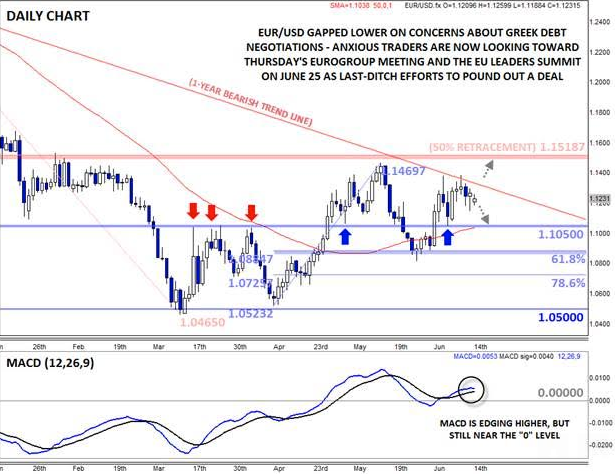On Friday, white-collar workers from around the world skipped out of the office, full of optimism for the coming weekend; today, those same workers collectively shuffled back into work wondering where the weekend had gone and resigned to another demanding week of meeting deadlines. Though they’re better paid and ostensibly wield more political influence, policymakers from Greece and its creditors can certainly relate to the plight of the modern worker after this weekend’s disappointment.
Sunday’s highly-anticipated talks between Greece and European Union were an abject failure, with talks breaking down after just 45 minutes. Greece claimed it was willing to continue the negotiations, but EU officials claimed the Greek government representatives failed to bring any new proposals to the table. In the words of one anonymous source, “This is very disappointing and sad. It was a last attempt to bridge our differences but the gap is too large. One can discuss a gap, but this is an ocean.”
Some would claim that the Mediterranean country has already technically defaulted on its debt by opting to bundle all of this month’s €1.6B debt payments to the end of this month, but if no deal is reached by July, the prospect of a Grexit (Greek exit from the Eurozone) could become the base case. On that note, there are two major dates for traders to have marked on their calendars over the next two weeks. Optimists still hope that Greece will give some ground at Thursday’s meeting of the Eurogroup Finance Ministers, but if the two sides are unable to make progress there, the European Union Leaders Summit on June 25 may be the last-ditch opportunity to avert an outright Greek default.
Market Reaction
As usual, traders opted to “shoot first, ask questions later” when it comes to investments in Greece. The 2-year Greek bond yield surged to nearly 28% this morning, while Greek equities tanked over 5%. Concerns about Greece have spread into other European bourses, as my colleague Fawad Razaqzada noted earlier today. When it comes to FX, the impact on EUR/USD has been relatively limited: the world’s most widely-traded currency pair gapped down to 1.1210 to start the week, but rates have stabilized in the low 1.1200s after filling the weekend gap.
Last week, we highlighted the 1-year bearish trend line on EUR/USD, suggesting that the pair’s medium-term bias would remain to the downside as long as that level held as resistance. If there is no progress in Thursday’s Eurogroup meeting, the selling pressure could take the unit down toward the convergence of the early June low, the key previous support/resistance line, and the 50-day moving average around 1.1050. Conversely, a productive meeting or semblance of an agreement between Greece and her creditors could break this bearish trendline; a close above 1.1350 could open the door for a continuation toward the mid-May peak near 1.1500.

Source: FOREX.com
For more intraday analysis and market updates, follow us on twitter (@MWellerFX and @FOREXcom)
Which stock should you buy in your very next trade?
AI computing powers are changing the stock market. Investing.com's ProPicks AI includes 6 winning stock portfolios chosen by our advanced AI. In 2024 alone, ProPicks AI identified 2 stocks that surged over 150%, 4 additional stocks that leaped over 30%, and 3 more that climbed over 25%. Which stock will be the next to soar?
Unlock ProPicks AI
